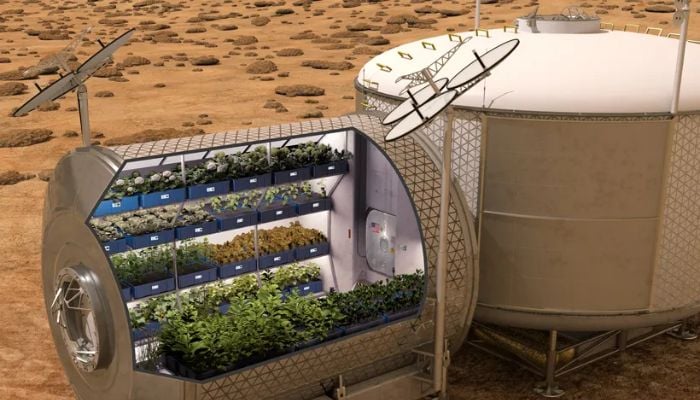Beyond potatoes and poo: Scientists explore new options for Martian agriculture
Unfortunately, Mars's soil contains perchlorate salts that are toxic to plants, making it difficult to grow food
A new study presented at the 54th Lunar and Planetary Science Conference proposes that genetically modified rice could potentially serve as a source of food for the first Mars colonists. This discovery could be a game-changer in the quest to establish a human settlement on Mars.
Given that Mars is at least a seven-month journey from Earth across 300 million miles/480 million kilometres, and that the planets are only at their closest every two years or so, the first humans living on Mars will need to grow their own food. Unfortunately, Mars's soil contains perchlorate salts that are toxic to plants, making it difficult to grow food.
To simulate Martian soil, scientists from the University of Arkansas used basaltic-rich soil mined from the Mojave Desert, which was developed by Nasa and the Jet Propulsion Laboratory. They grew three varieties of rice in the soil, including one wild strain and two gene-edited strains that were better adapted to drought, lack of sugar, and salty conditions. They also grew the same three strains in potting soil and a mix of the two.
The team found that genetically modified rice grows well in simulated Martian soil if a quarter of it is potting soil. They also discovered that three grams of perchlorate per kilogram of soil is the limit at which any strain of rice can grow.
The discovery could have implications beyond Mars, as it could be beneficial in regions on Earth where the soil has a high salt content. The team suggests using Earth as a terrestrial analogue before the seeds ever get sent to Mars.
The next step for the team is to experiment with a newly developed Martian soil simulant and other strains of rice. After that, they plan to develop a Mars simulation chamber that replicates the temperature and atmosphere of the red planet.
This breakthrough could be instrumental in achieving the goal of colonising Mars and providing a sustainable food source for future Martian settlers.
-
Humans may have 33 senses, not 5: New study challenges long-held science
-
Northern Lights: Calm conditions persist amid low space weather activity
-
SpaceX pivots from Mars plans to prioritize 2027 Moon landing
-
Dutch seismologist hints at 'surprise’ quake in coming days
-
SpaceX cleared for NASA Crew-12 launch after Falcon 9 review
-
Is dark matter real? New theory proposes it could be gravity behaving strangely
-
Shanghai Fusion ‘Artificial Sun’ achieves groundbreaking results with plasma control record
-
Polar vortex ‘exceptional’ disruption: Rare shift signals extreme February winter












